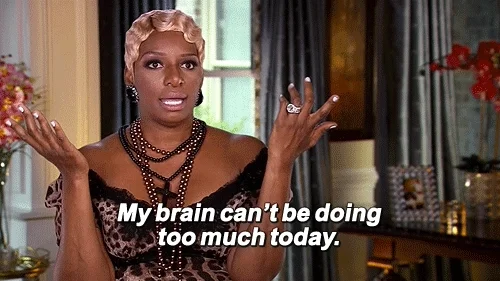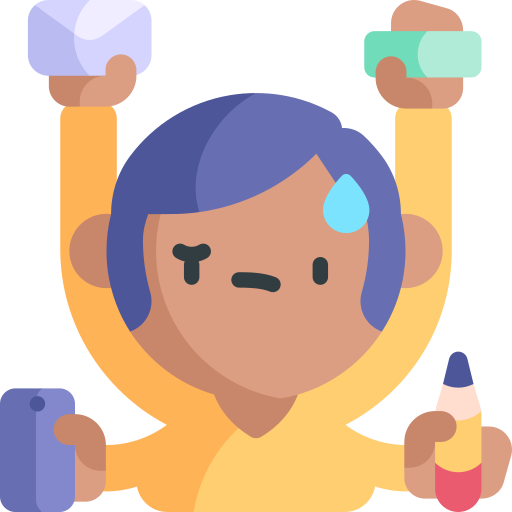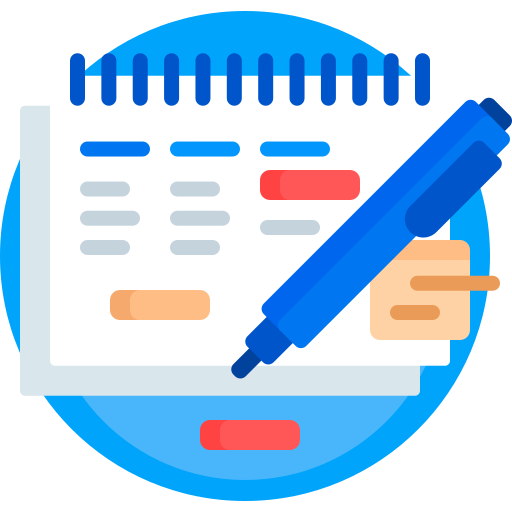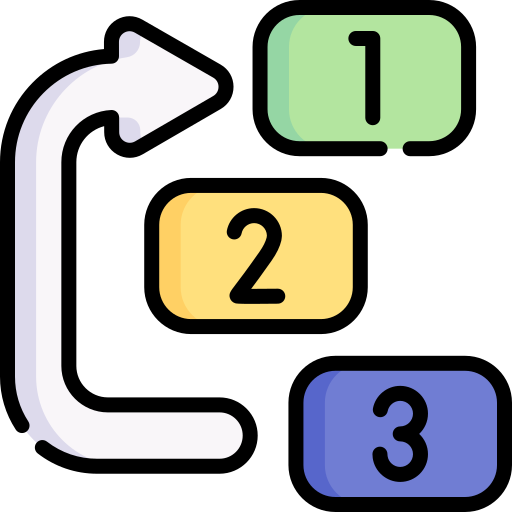
Have you ever felt like your brain stopped working properly?
You can't think straight.
You're irritable.
You struggle to make decisions.
You can't concentrate.

This might be a sign of cognitive or mental fatigue — your brain is tired! It's working hard to plan, communicate, remember, pay attention, and solve problems.
You can help your brain recover by taking "brain breaks" — steps that will help you avoid tiring out your brain so much in the future.
Did you know?
How to Take a Brain Break
You need to let your brain zone out and stop actively thinking. Psychologists know this as using the brain's "default mode" network.

These brain break ideas can help you get started:

Daydream over a drink.

Listen to some music.

Meditate, stretch, or do relaxing breathing exercises.

Go for a walk — but don't check your phone.

Complete a simple chore.

Hang out with an animal.
Rest is actually a useful, productive use of time.
Check out the video below for a reminder of the importance of rest from a trauma-informed practitioner:
Quiz
Which of these is NOT a brain break?
Did you know?
Make a Cognitive Load Plan
Remember, you don't need to change your routine all at once! That will only tire your brain out (again). Instead, take these steps:
 1. Anticipate
1. Anticipate
Identify tasks that require a lot of concentration or deep thinking.
Schedule these demanding jobs at the time of day when you are most alert.
 2. Break it up
2. Break it up
Break large tasks down into smaller pieces, and schedule those individually.
Then spread them out evenly throughout the week.
 3. Alternate work and rest
3. Alternate work and rest
Plan your day so "brain work" is followed by a brain break.
Use the Pomodoro Technique.
Book recovery times in your schedule.
 4. Give yourself enough time
4. Give yourself enough time
Be realistic about how much time tasks and events will take.
Rushing and stress increase brain fatigue.
Reduce the Load

Prioritize tasks so you know what you need to do first. Include work/study, personal, household, and social tasks. This Byte on task prioritization might help.

Delegate tasks to a person or computer system — for example, pay your bills automatically, or set phone reminders for upcoming deadlines.

Remove unnecessary tasks from your schedule. You don't have to do everything! Some tasks aren't important to your current goals — delete them.

Simplify tasks. Create systems to make streamline tasks — for example, create a list of meals for two weeks and repeat for several months, or create an email folder for non-urgent items "to be replied to".
Quiz
You want to have more mental energy for the things you really care about. What should you do? Select all that apply:
Did you know?
Subscribe for more quick bites of learning delivered to your inbox.
Unsubscribe anytime. No spam. 🙂
Take Action

Your feedback matters to us.
This Byte helped me better understand the topic.
